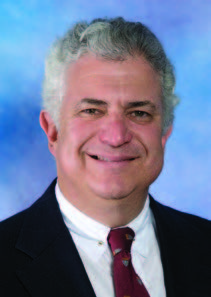
President and CEO
The Brownstein Corporation
Howard Brownstein, president and CEO of the Brownstein Corporation, has had a legendary career in the turnaround management and asset-based lending industries. He recollects his professional saga as a turnaround and crisis management professional and the evolution of a continuously vibrant profession.
Howard Brownstein is an accomplished turnaround and crisis management professional with a storied list of successes. A well-known and active member of the asset-based lending and turnaround management industries, particularly through his extensive work with organizations like the Secured Finance Network and the Turnaround Management Association, Brownstein got into the turnaround management industry in the 1990s, when, according to Brownstein, it hadn’t yet blossomed into what it is today. Instead, it existed as something that had grown out of public accounting, producing specialists to assist lenders in (at first) troubled financial situations. As it became apparent that operational issues were often at the root of financial issues, turnaround professionals emerged to assist borrowers directly and more extensively.
“It was a relatively small profession then, and I was among the earliest to become a Certified Turnaround Professional (CTP),” Brownstein says. “My work inevitably put me in contact with lenders, especially ABLs who typically served middle-market and smaller companies.”
Change for the Better
Brownstein says one of the most profound changes to occur in this industry since he first started is the increase in diversity of top lender personnel. When Brownstein started working with “line lenders” — those who brought in the business and then interfaced with borrowers — they were almost universally white men, with women, people of color and others from underrepresented groups often hidden behind the scenes. Brownstein says the industry has come a long way since then, but knows it is still far from finished when it comes to increasing diversity in executive roles and beyond.
Since his early days, Brownstein’s work has taken him across the United States and abroad, introduced him to numerous industry connections and continued to be exciting. Browstein specifically enjoys interacting with business leaders with the hope of solving a company’s problems, as well as the variety turnaround management provides, with no two situations ever alike.
In addition to the turnaround profession’s expansion, Brownstein has also watched numerous associations and programs develop to cater to the profession.
“My involvement with industry associations, including playing leadership roles in several cases, has been both enjoyable and educational,” Brownstein says. “I like interacting with and learning from others, and at these organizations, there is an enormous amount of potentially useful information that is shared and available. In many professions, and especially in the turnaround profession, a lot is accomplished behind the scenes and through interpersonal interactions, so having relationships with a very broad range of people — lenders, attorneys, accountants, other turnaround professionals — can really be helpful in getting the job done.”
Landmark Cases and Career Successes
Throughout his career, Brownstein has had the opportunity to work on many high-profile business distress cases in addition to serving multiple terms on the boards of directors of both the Turnaround Management Association and the American Bankruptcy Institute while leading their regional and national programs. He also received the TMA’s annual outstanding individual contribution award in 2007.
“I was in charge of the liquidation of Montgomery Ward, the largest retail liquidation in history,” Brownstein recounts. “I served as a litigation expert in the landmark Merry-Go-Round bankruptcy, which involved litigation against Ernst & Young for an amount greater than their total global billing during the prior year. And I served as chief restructuring officer in U.S. Mortgage, which involved a $138 million mortgage fraud against Fannie Mae and others.”
Brownstein says demonstrating support for clients is paramount in all situations. While he does not offer legal advice despite having legal training and being admitted to the bar, Brownstein emphasizes the need to ensure clients are aware of the role of each party involved in any deal, as well as the limitations with which lenders (regulated lenders especially) must deal. In short, he and his team are there to bring clients back to reality, form a solid plan and execute it with efficiency. Currently, Brownstein’s firm, The Brownstein Corporation, is a small firm, but don’t let its size fool you, as turnaround cases typically only require one or two individuals to manage, according to Brownstein, who personally sees most of the firm’s cases through. Overseeing all client engagements, Brownstein also offers litigation support, investment banking services and fiduciary services to help companies sell or refinance.
Brownstein will continue his role at The Brownstein Corporation for the foreseeable future, noting he looks forward to continuing to write and speak at industry events regularly. To date, he has published more than 100 articles, book reviews and book chapters. He also plans to continue to serve on multiple boards, relishing the opportunity to utilize effective governance in order to get the job done.
“I’d like to be remembered as someone who reached across lines of potential disagreement to help find compromises and areas of common interest,” Brownstein says.
